
James Joseph Heckman is a Nobel Prize-winning American economist at the University of Chicago, where he is The Henry Schultz Distinguished Service Professor in Economics and the College; Professor at the Harris School of Public Policy; Director of the Center for the Economics of Human Development (CEHD); and Co-Director of Human Capital and Economic Opportunity (HCEO) Global Working Group. He is also Professor of Law at the Law School, a senior research fellow at the American Bar Foundation, and a research associate at the National Bureau of Economic Research. In 2000, Heckman shared the Nobel Memorial Prize in Economic Sciences with Daniel McFadden, for his pioneering work in econometrics and microeconomics. As of December 2020, according to RePEc, he is the second-most influential economist in the world.
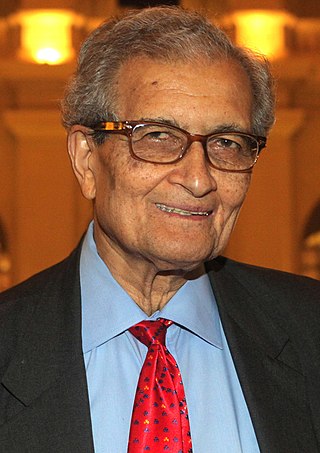
Amartya Kumar Sen is an Indian economist and philosopher, who since 1972 has taught and worked in the United Kingdom and the United States. Sen has made contributions to welfare economics, social choice theory, economic and social justice, economic theories of famines, decision theory, development economics, public health, and measures of well-being of countries.
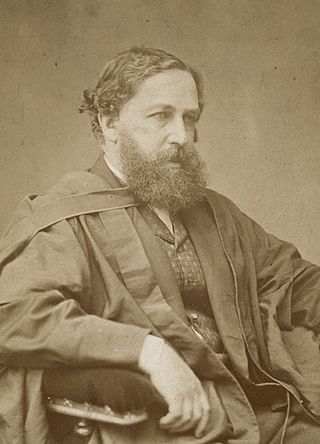
William Stanley Jevons was an English economist and logician.
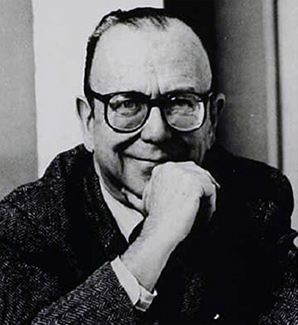
Robert L. Heilbroner was an American economist and historian of economic thought. The author of some 20 books, Heilbroner was best known for The Worldly Philosophers: The Lives, Times and Ideas of the Great Economic Thinkers (1953), a survey of the lives and contributions of famous economists, notably Adam Smith, Karl Marx, and John Maynard Keynes.
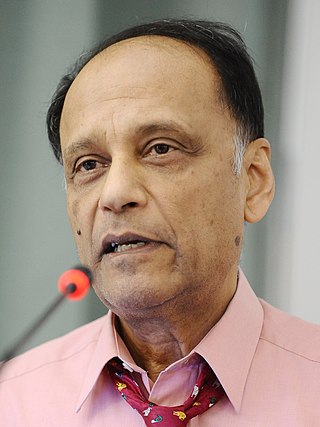
Sir Partha Sarathi Dasgupta is an Indian-British economist who was Frank Ramsey Professor of Economics at the University of Cambridge, United Kingdom, and a fellow of St John's College, Cambridge.
John Skorupski is a British philosopher whose main interests are epistemology, ethics and moral philosophy, political philosophy, and the history of 19th and 20th century philosophy. He is best known for his work on John Stuart Mill and his study of normativity, The Domain of Reasons.

Kenneth George "Ken" Binmore, is an English mathematician, economist, and game theorist, a Professor Emeritus of Economics at University College London (UCL) and a Visiting Emeritus Professor of Economics at the University of Bristol. As a founder of modern economic theory of bargaining, he made important contributions to the foundations of game theory, experimental economics, evolutionary game theory and analytical philosophy. He took up economics after holding the Chair of Mathematics at the London School of Economics. The switch has put him at the forefront of developments in game theory. His other interests include political and moral philosophy, decision theory, and statistics. He has written over 100 scholarly papers and 14 books.
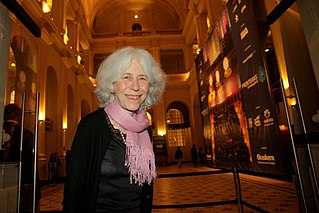
Emma Georgina Rothschild is a British economic historian, a professor of history at Harvard University. She is director of the Joint Centre for History and Economics at Harvard, and an honorary Professor of History and Economics at the University of Cambridge. She formerly served as board member of United Nations Foundation and as a professor at the École des hautes études en sciences sociales (EHESS) in Paris.
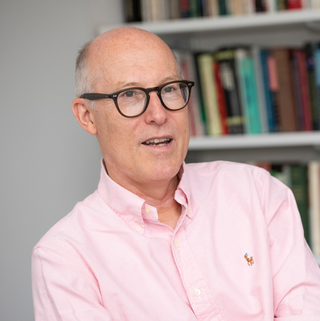
Sir Timothy John Besley, is a British academic economist who is the School Professor of Economics and Political Science and Sir W. Arthur Lewis Professor of Development Economics at the London School of Economics (LSE).
Frederic Michael Scherer is an American economist and expert on industrial organization. Since 2006, he continues as a professor of economics at the JFK School of Government at Harvard University.
Neil De Marchi, is an Australian economist and historian of economic thought and is a professor at Duke University. De Marchi specializes in both teaching and research that pertains to the history of economic ideas and the history of markets, and also the functioning of markets with a specific focus on art markets. His works have appeared in such journals as the Journal of Economic Behavior and Organization, the Journal of Econometrics, the European Journal for the History of Economic Thought, and the Art Bulletin. He has also contributed to pieces within various books, having written introductions to such works as “Idealization in Economics, Poznan Studies 38,” and a biographical entry of John Stuart Mill for The Handbook of Economic Methodology. De Marchi received his Ph.D. from Australian National University in 1970, after completing his B.Phil. in economics at the University of Oxford. He also obtained his B.Ec. with first-class honors in 1960 from the University of Western Australia. He is a Distinguished Fellow of the History of Economics Society.
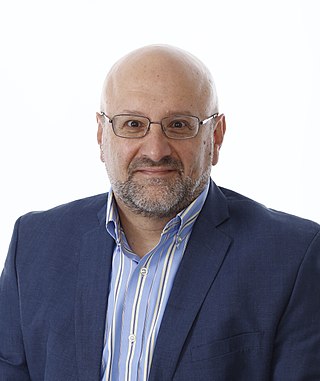
Steven G. Horwitz was an American economist of the Austrian School. Horwitz was the Distinguished Professor of Free Enterprise in the department of economics in the Miller College of Business at Ball State University in Muncie, Indiana. In 2017, he retired as the Dana Professor of Economics Emeritus at St. Lawrence University.
Joseph John Spengler was an American economist, statistician, and historian of economic thought. A recipient of the 1951 John Frederick Lewis Award of the American Philosophical Society and the 1981 Distinguished Fellow Award from the History of Economics Society, he was Professor Emeritus of Economics at Duke University at the time of his death.

Joan Martinez Alier is a Catalan economist, Emeritus Professor of Economics and Economic History and researcher at ICTA at the Autonomous University of Barcelona.
Abdul Azim Islahi is a professor at the Islamic Economics Institute, Jeddah. He has spent more than 30 years in research, teaching and expanding the frontiers of the discipline of Islamic economics, King Abdulaziz University. He obtained his PhD from the Aligarh Muslim University, India in 1981. He is an authority on the history of Islamic economic thought.
Kevin Hjortshøj O'Rourke, is an Irish economist and historian, who specialises in economic history and international economics. Since 2019, he has been Professor of Economics at New York University Abu Dhabi. He was Professor of Economics at Trinity College, Dublin from 2000 to 2011, and had previously taught at Columbia University and University College, Dublin. From 2011 to 2019, he was Chichele Professor of Economic History at the University of Oxford and a Fellow of All Souls College, Oxford.
Margaret Schabas is a Canadian philosopher and professor of philosophy at the University of British Columbia notable for her work in the history and philosophy of science, particularly the science of economics. Schabas has also published numerous articles and book chapters on the British empiricists, David Hume, Adam Smith, and John Stuart Mill.
Herman Frans Anna baron Van der Wee is a Belgian economic historian. He was a full professor of social and economic history at the KU Leuven from 1969 to 1993. The academic output of Van der Wee spans economic history, the history of banking, financial history. He has performed research on the period from the Middle Ages to the present time. Geographically he has performed broad research as well, looking into Antwerp, Belgium, the Low Countries, Europe and the world.
The Department of Economics is an academic department of the University of Oxford within the Social Sciences Division. Relatively recently founded in 1999, the department is located in the Norman Foster-designed Manor Road Building.









